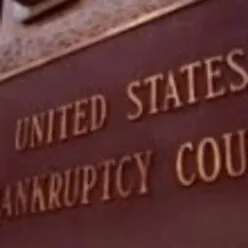Find experienced bankruptcy lawyers near you with our easy-to-use platform. Regain financial control and peace of mind. Contact us today for a free consultation!
Bankruptcy Master
What is Bankruptcy?
Bankruptcy is a legal process that can help consumers get relief from their debt. It can provide a fresh start by wiping out certain types of debt and allowing them to make payments on others. There are several different types of bankruptcy, each with its own advantages and disadvantages.
Table of Contents
Chapter 7 Bankruptcy
The most common type of bankruptcy for consumers is Chapter 7 Bankruptcy. This type of bankruptcy wipes out most types of unsecured debt, such as credit card debt and medical bills. It also allows the debtor to keep certain assets, such as a home or car, while eliminating other debts. The debtor must meet certain qualifications to qualify for a Chapter 7 bankruptcy.
- Immediate debt relief: Filing for Chapter 7 bankruptcy triggers an automatic stay, which temporarily halts all collection efforts and provides immediate relief from creditors.
- Quick discharge process: Chapter 7 bankruptcy typically takes 4-6 months to complete, offering a relatively fast path to a fresh financial start by discharging most unsecured debts.
- Retain exempt property: Filers can keep certain assets deemed exempt under state or federal laws, allowing them to protect essentials such as a primary residence, vehicle, or personal belongings.
- Stop wage garnishments and lawsuits: Filing for Chapter 7 bankruptcy can put an end to wage garnishments and pending lawsuits related to debt, providing filers with a chance to rebuild their finances.
- Improve credit over time: Although a Chapter 7 bankruptcy will appear on your credit report for 10 years, credit scores can begin to improve within a few years as discharged debts are no longer weighing you down.
Chapter 13
Chapter 13 Bankruptcy is another type of consumer bankruptcy. It allows the debtor to keep all of their assets, but requires them to enter into a repayment plan with their creditors. The repayment plan must be approved by the court and is typically based on the debtor’s income and expenses. The repayment plan must be followed for three to five years, after which any remaining debt is discharged.
- Debt repayment plan: Chapter 13 bankruptcy allows filers to consolidate their debts into a single, manageable repayment plan, typically lasting 3-5 years, while protecting their assets from liquidation.
- Save your home: Chapter 13 can help filers avoid foreclosure and catch up on mortgage payments over time, allowing them to keep their home and maintain stability for their family.
- Automatic stay: Filing for Chapter 13 triggers an automatic stay, which provides immediate relief by temporarily stopping collection efforts, wage garnishments, and lawsuits related to debt.
- Debt discharge: Upon successful completion of the repayment plan, remaining unsecured debts, such as credit card debt and medical bills, may be discharged, offering a fresh financial start.
- Credit impact: While a Chapter 13 bankruptcy remains on your credit report for 7 years, timely payments during the repayment plan can demonstrate financial responsibility and help improve your credit score over time.
Chapter 11
Chapter 11 Bankruptcy is typically used by businesses, but it can also be used by individuals with large amounts of debt or complex financial situations. This type of bankruptcy allows the debtor to reorganize their debt and create a repayment plan that is approved by the court. The repayment plan must be followed for three to five years, after which any remaining debt is discharged.
- Business reorganization: Chapter 11 bankruptcy allows businesses to restructure their debts and operations, enabling them to continue running while working towards long-term financial stability.
- Flexible repayment plans: Under Chapter 11, businesses can negotiate new terms with creditors, such as extending payment deadlines, reducing interest rates, or modifying loan agreements to create a more manageable repayment plan.
- Retain control of assets: Unlike Chapter 7, Chapter 11 allows business owners to maintain control of their assets and operations during the reorganization process, which can help preserve the value of the business.
- Automatic stay protection: Filing for Chapter 11 triggers an automatic stay, halting all collection efforts, foreclosures, and litigation against the business, providing breathing room to develop a successful reorganization plan.
- Opportunity for growth: The reorganization process can lead to a leaner, more efficient, and profitable business by identifying and addressing operational inefficiencies, cutting costs, and focusing on core competencies.
Chapter 12
Chapter 12 Bankruptcy is similar to Chapter 13 Bankruptcy but it is specifically designed for family farmers and fishermen. It allows the debtor to reorganize their debt and create a repayment plan that is approved by the court. The repayment plan must be followed for three to five years, after which any remaining debt is discharged.
- Tailored to family farmers and fishermen: Chapter 12 bankruptcy is specifically designed for family farmers and fishermen, providing a streamlined and specialized process to address the unique financial challenges they face.
- Debt reorganization: Like Chapter 11, Chapter 12 allows for the restructuring of debts, enabling filers to create a manageable repayment plan that takes into account the seasonal nature of their income.
- Asset protection: Chapter 12 filers can often keep their assets, such as land, equipment, and vehicles, which are critical to the continued operation and success of their farming or fishing business.
- Automatic stay: Filing for Chapter 12 triggers an automatic stay, which temporarily halts foreclosures, collections, and other legal actions, giving filers time to develop a feasible repayment plan.
- Efficient process: Chapter 12 offers a more streamlined and cost-effective process compared to Chapter 11, making it a more accessible option for family farmers and fishermen seeking financial relief.
How Does Bankruptcy Attorney Help?
Bankruptcy can provide relief from debt for consumers who are struggling financially. It can help them get a fresh start by wiping out certain types of unsecured debt and allowing them to make payments on others. It is important to understand the different types of bankruptcy and the requirements for each before filing. An experienced bankruptcy attorney can help you determine which type of bankruptcy is right for you.
- Expert guidance: A knowledgeable bankruptcy attorney can help you navigate the complex legal process, providing valuable insights and ensuring you make well-informed decisions based on your unique financial situation.
- Correct filing: Bankruptcy attorneys ensure that all required documentation is accurately prepared and submitted, minimizing the risk of errors that could lead to delays or dismissal of your case.
- Representation in court: An attorney can represent you in court proceedings, advocating on your behalf and protecting your interests throughout the bankruptcy process.
- Maximize exemptions: A skilled bankruptcy lawyer can help you take full advantage of available exemptions, allowing you to retain as many of your assets as possible while still obtaining debt relief.
- Tailored solutions: Bankruptcy attorneys can evaluate your financial situation and recommend the most suitable bankruptcy chapter for your needs, ensuring you receive the most effective debt relief solution.

